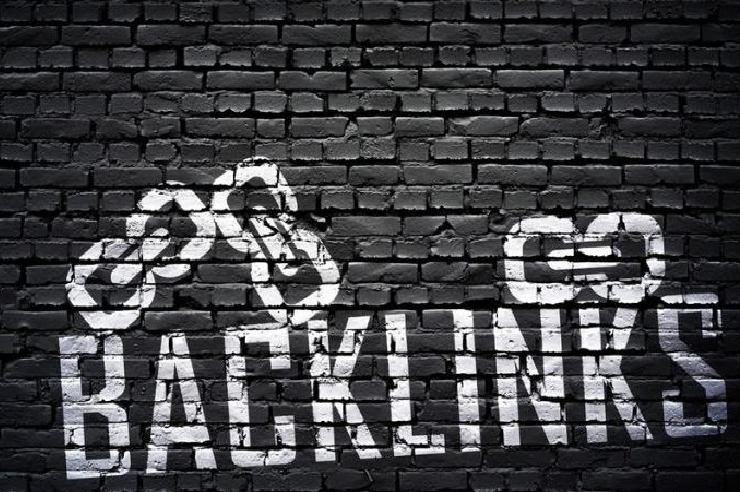Research shows that the ROI for SEO marketing can be as high as 12.2x. And 70% of marketers believe that it delivers better results than their pay-per-click (PPC) ads. Statistics like these reinforce the idea that SEO marketing is critical to your company’s success. But if you want good SEO results, you need to rank highly in Google’s algorithm for specific keyword searches relevant to your business.
What Are Backlinks?
Backlinks are links that send people from one website to another. For example, a blog about marketing may claim one strategy is better than another and link to a research paper that proves it, and that would give the research paper a backlink.
Backlinks vs. Links
Before going any further, it’s important to know that backlinks and links aren’t the same. A link can direct people anywhere. But a backlink must direct people from one website to another.
If you want to get technical, a backlink is a specific type of link. The term link can describe both backlinks and non-backlinks.
Why Are Backlinks Important to SEO?
Google’s search algorithm views backlinks as votes for web pages. So if a website has lots of backlinks, it’s been voted for numerous times. To Google, that means the website has value, and it places the site higher in related search results because of that.
Some research even suggests that links in general and backlinks specifically are Google’s key ranking signals.
The bottom line is that if you want to do well with SEO, getting a lot of backlinks might be the very best thing you can do to make that happen.
Types of Backlinks
There are many different types of backlinks – some of which are viewed more favorably by Google than others. We’ll dive into the most valuable types of backlinks in the next section. But for now, here’s an overview of what’s out there:
- Guest-blogging backlinks
- Editorial backlinks
- Acknowledgment backlinks
- Free-tool backlinks
- Badge backlinks
- Backlinks from press releases
- Backlinks from webinars
- Backlinks from business profiles
What Are High-Quality Backlinks?
If you want to get the most out of your backlinks, you need to be able to answer two questions:
- What are high-quality backlinks?
- What are toxic backlinks?
We’ll explore both in this section, starting with high-quality backlinks.
 High-Quality Backlinks
High-Quality Backlinks
A backlink is high-quality when attached to content that offers real value, which includes web pages like:
- High-value editorial blog posts
- Guest blog posts
- Links to webinars and free tools
- Links to your business profiles
What are toxic backlinks?
You want to avoid toxic backlinks because using them can harm your SEO performance instead of helping it. Here are the main offenders:
- Paid backlinks
- Backlinks in press releases that aren’t newsworthy
- Low-quality forum backlinks
What Are Follow and Nofollow Links?
You should know this distinction as you think about adding backlinks to your SEO strategy. Here’s how we define each term.
Follow Links
When Google’s SEO crawler sees a backlink, it looks to see whether it’s a ‘follow’ link or a ‘nofollow link.’ Follow links are links that count towards your backlink score. You might also find these if you look up “What are ‘dofollow’ backlinks.”
Nofollow Links
If you’ve ever spent time looking up “What are ‘nofollow’ backlinks?” Then you know that you want to stay away from these as much as possible.
“Nofollow” is an HTML tag that a website can use to indicate that Google’s SEO crawler should ignore the backlink. In other words, if you get a “nofollow” backlink, it doesn’t count toward your overall backlink rating.
The good news is that the vast majority of backlinks are follow links. And of those that are no-follow links, the vast majority of these aren’t all that valuable, to begin with.
Backlinking Best Practices for SEO
Create high-value, evergreen content
People link to websites when they’re valuable. So if you want to get more backlinks, you need to create more valuable content.
The best way to do this is often with a blog that focuses on topics relevant to your industry and your customers.
When you create blog posts that become the authority for the topics you’re writing about, you’ll naturally get a lot of backlinks and will move up in SEO results because of that.
Build free tools
Free tools and resources are also incredibly valuable for backlinking purposes because content publishers send their audiences to use these items often. That’s why creating free tools and resources, such as eBooks, checklists, and guides could do wonders for your backlinking results.
Develop reciprocal relationships with other sites
Anybody who runs a website has an interest in getting more backlinks – especially if those backlinks come from a site with a ton of traffic.
That’s why it could also make sense to look for backlinking partnerships with companies in your industry. However, this may not work with direct competitors.
But let’s say you sell one type of B2B software and another major company sells a different type of software. You could agree to link one another’s products in whatever content you create where that type of software comes up.
Oyova Makes Backlinking and Other SEO Best Practices a Breeze
You could spend days searching for “What are SEO backlinks examples” and trying to implement what you find on your own. But this is a super time-consuming process – especially for someone who isn’t already an expert.
That’s why you should consider reaching out to Oyova. We’re SEO experts with experience in developing the right SEO strategy and quality backlinks for your business so you can continue to focus on what you do best.
Get in touch with us to learn more about how we can help.



